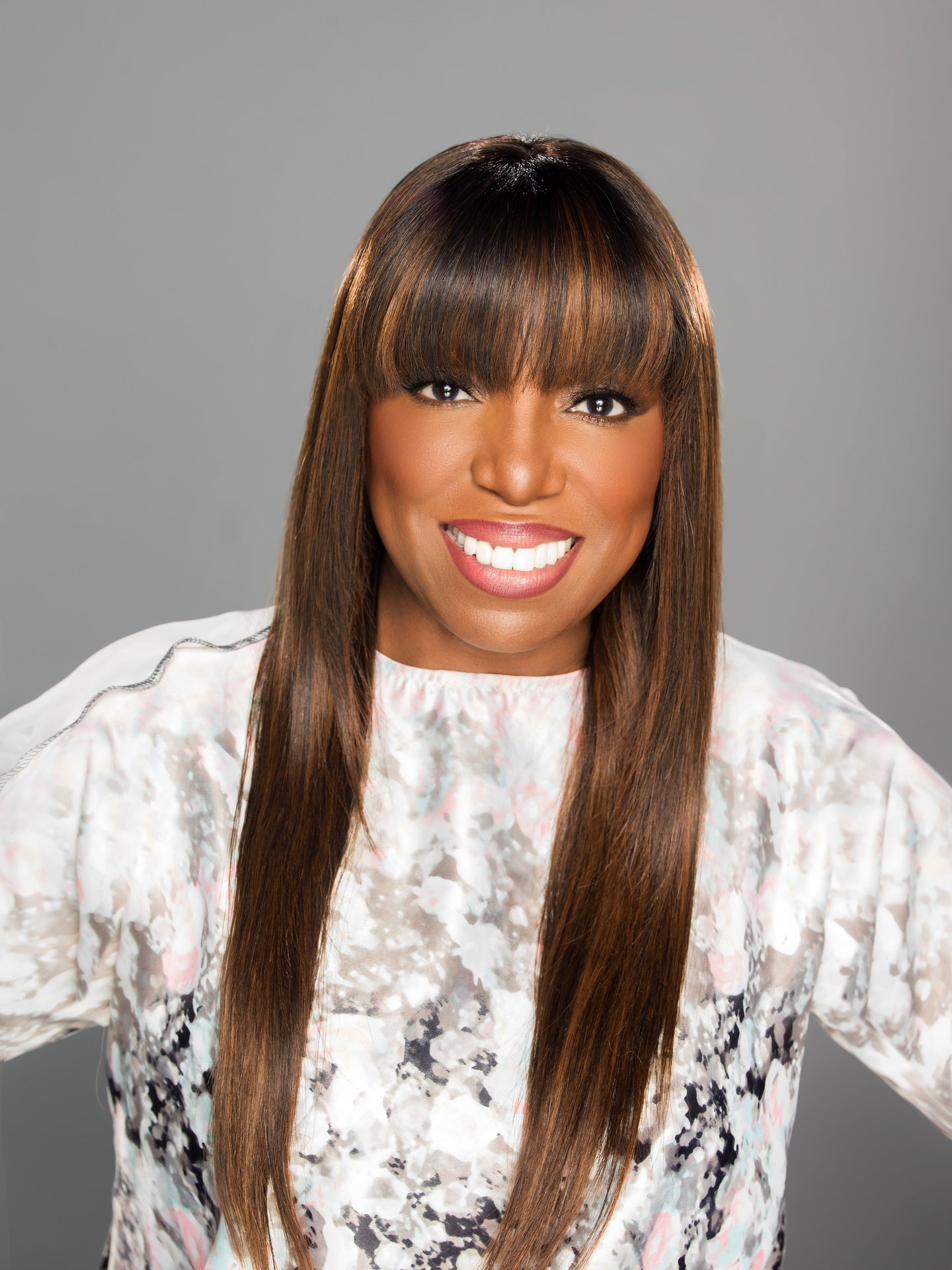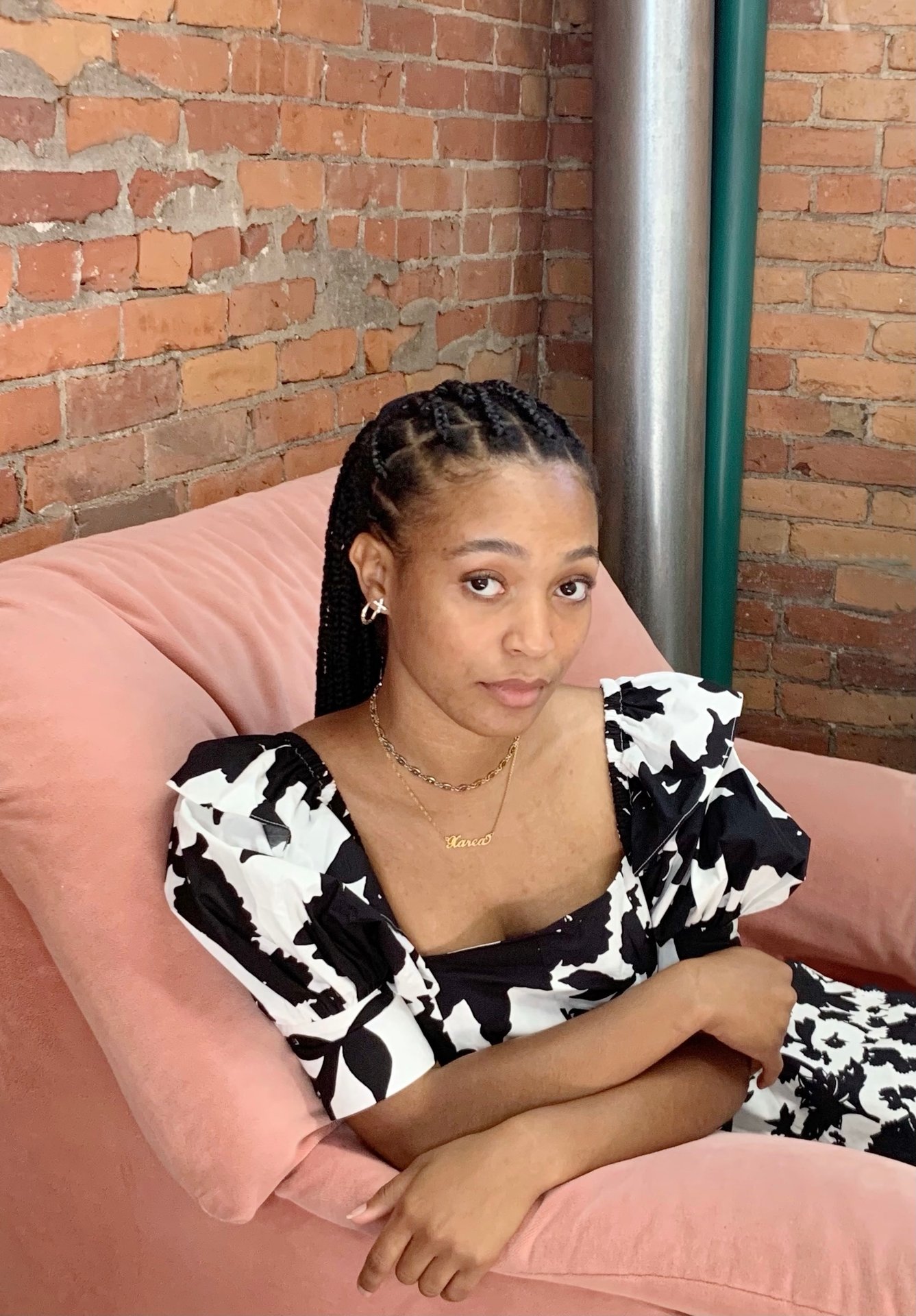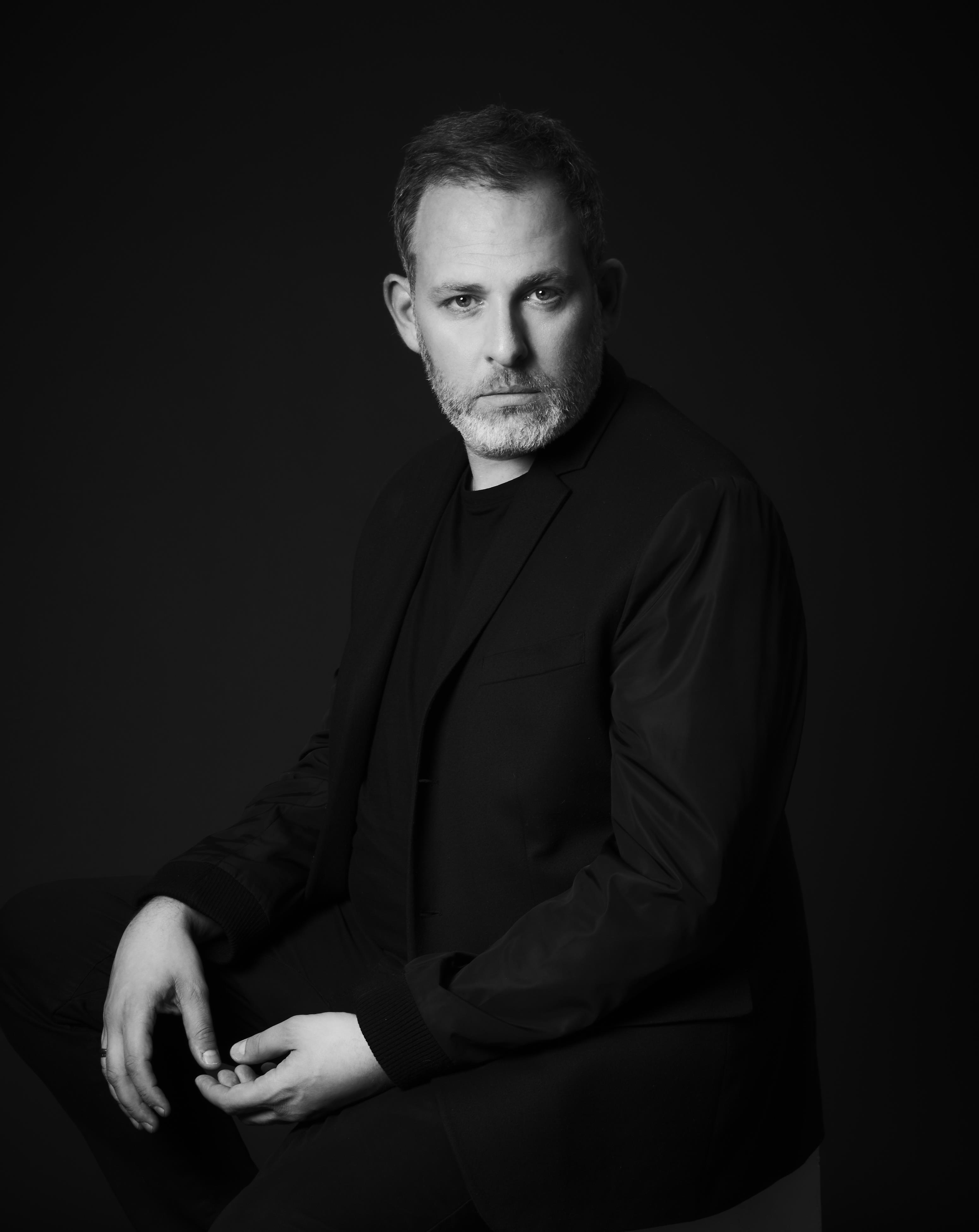Making My Mark: Mikki Taylor
June 29, 2021
Karyl J. Truesdale


“My mother told me to not take the road well-traveled – she told me to blaze my own trail!”
Mikki Taylor has lived an innate life of the old cliché – “many are called but the chosen are few.” A purposeful and storied life dedicated to three decades of fashion, beauty, and storytelling. Mikki once declared to an Essence festival crowd: “for 30 something years, I’ve had the joy of doing what I love, and as such I haven’t worked a day in my life, and there has been no joy greater to me than serving us.”
Born and raised in Newark, New Jersey, known infamously as “Zion” or “Brick City” to its many cultured residents, Taylor was prodded by her mother, a beauty entrepreneur, who was her quintessential mentor, role model and tour guide when it came to all things beauty. She understood the importance of inner and outer beauty, and that one could not exist without the other.
Taylor, a beauty expert, author, and editor at large has single handedly carried the torch of a servitude leader and activist- when it comes to ensuring that millions of Black women were well represented in and by the historical publication Essence. Built on the framework that Black is beautiful. Black is here. Black is now, and Black is forever.
You are a trailblazing pioneer of the Essence Magazine institution, from former Beauty and Cover Director to present-day Editor at Large. Was beauty and journalism always a passion of yours and how did you initiate your start at the publication?
I grew up in what I call beauty school, which was my home. My mother was the long-time hairstylist, makeup artist, and wardrobe stylist to the legendary icon, five octave jazz singer Sarah Vaughan. My mother traveled the world with Sarah for 10 years, curating her style and establishing her elegance at a time when Black women were invisible. I was always with her when Sarah was in town, where children were permitted. The Jackie Gleason Show and The Ed Sullivan Show were my mother’s “take your daughter to work day.” After she retired from traveling on the road, she opened her own beauty salon in the heart of Newark, New Jersey. That is where I really saw the transformative power of beauty – where Black women were getting affirmations, beauty tips, therapy, and information. These were everyday women as well as women of affluence, and it impressed upon me how beauty was a form of self-expression for us, and that the power of Black beauty could not be denied. Fast forward when I became Beauty Editor at Essence Magazine…I joined the team in 1980 after a cultivation in both the fashion and beauty industries. On my watch, it became important to me that we were no longer invisible. My first job description as Beauty Editor stated that my role was to “affirm the cultures’ definition of beauty.” That was not a difficult task for me in all shades, shapes, and sizes because I knew us — not only from my neighborhood, growing up in the multi dynamic city of Newark, New Jersey, but also growing up in a show business home and in my mother’s beauty salon. What was my disdain if you will would be a pure lack of products that really spoke to our beauty and how we see ourselves and what we were deserving of. I took it upon myself to educate beauty companies about how we Black women saw ourselves and that beauty for us was self-referential… what resonated with us and the products that were missing from the marketplace. Now mind you, the products that were for us in the 80s could fit in the span of my two arms. Those that were good would come and go because companies would not wait to build brand equity with the audience. I became the advocate, the activist, and the lone voice in press rooms if you will, because many times I was the only Black woman in the room. I met with marketing executives to gain entry to laboratories and learned that many times, products were not tested on us and yet they wanted my referendum for them with Black women? No, not so! I began to test products myself, so anything that I wrote about I had to vouch for as Black women’s most trusted authority in beauty. Every day and until this day, I still get up and go to work for us, not for anyone else the world over; for Black women and most certainly women of color.
You played a very significant role in the historic fashion documentary “Versailles 73”, may you elucidate that experience, and what it meant as a Black model in the fashion industry at that time?
Certainly, that is where I first met film director Deborah Riley Draper on the set of “Versailles 73.” It was an honor and a privilege for me to talk about that period and what that groundbreaking experience meant not only for the convene of models that went and saved the Palace of Versailles – if we are quite honest? But what it meant for us in America, as a model, it changed the tide if you will. This film was epic in what it did for civil rights in the industry, but then also what it did for American models in the industry and particularly American Black models. After the Americans won in Paris, designers began to have entire representations of Black models. Designers like Givenchy… Bill Blass added more to his runway, Geoffrey Beene, Oscar de la Renta, you could go down the echelon. That historic moment, November 28, 1973, was a real game changer and it was an honor to be a part of this documentary and to speak about the pivotal moments that took place. The way Bethann Hardison became the incarnation of the activist; the way she modeled the clothes and pronounced the train! The way Pat Cleveland came to life on that stage was like a modern-day Josephine Baker! The way Alva Chinn’s body language carried the garments with the dignity of her elders! This was more than a fashion show. It took the visionary that Deborah Riley Draper inhabited to say this story must be told and one that will never be forgotten! It was bigger than saving the Palace of Versailles. It was bigger than that.
In your opinion, has the world of beauty received its desired recognition in the fashion industry, and if agreed, how so? If not, what must be done?
What is amazing, in my viewpoint, [is that] you would think and often take for granted that beauty and fashion are inextricably bound. But many times, to me, they seem like two trains running. So, what do I mean by that? You continuously see Black celebrities and models in advertisements and on magazine covers. You are seeing Zendaya, Lupita Nyong’o, and Aya Jones for the Nars campaign and what Rihanna has done for beauty … something that I advocated for, shades to match our multiplicity of skin tones. Rihanna has 50-plus shades and many of them reach women of color. Tracee Ellis Ross has Pattern, her haircare line, and Taraji P. Henson has TPH. You cannot open a magazine without seeing us in beauty advertisements — not necessarily so across the board in fashion on a consistent basis, it is almost like Black women trend, and I do not understand how Black women can be a trend? Black beauty and Black women are here to stay. We have not won. I am dressed for the celebration, but I am not going anywhere yet. The doors are not open in flow and we are still the authors of our story, the narrators of beauty all shades, shapes sizes, and not that which is trending. Uphold Black beauty up in all its glory. You do not trend it, you do not cherry pick it, you do not have it go away and have it come back as a renaissance. No, no, no! Not if your bottom line still depends on currency and Black women still index high in their spending habits when it comes to beauty and fashion, no matter what the climate or season.
Describe a time at Essence when you thought outside the box on a new concept or idea and was it well received or a missed opportunity?
Oh wow! There have been many. Six years into my tenure at Essence Magazine, I designed and pitched for the position of Cover Editor. I wanted to give the magazine cohesion which was later known as branding. I wanted to offer something distinct so that amid hundreds of titles on the newsstand, Black women would know this was exclusively theirs by the look, positioning and authenticity of the woman or man on the cover. I pitched for that position, and I got it! After this, I subsequently became Beauty and Cover Director. As I built my stories, I mixed creatives like a cocktail! I had sets built, I produced video shorts and approached my cover shoots like a shot-by-shot film. As Booker T. Washington said: “Excellence is to do a common thing in an uncommon way.” So, I never went into the studio to obtain a picture. I went in to capture a moment and tell a story.
The Black community has always been in forefront of creating and instituting out own savoir faire, when you think of the idiom Black glamour, what immediately comes to mind?
Oh my! Black glamour is in a class all by itself! Nothing like it ever was or ever will be! It is wearable art. It is a soul force. It is an unapologetic point of view. It is a self-expression that is constantly remixed to showcase all the creators that lie inside each of us.
If you could characterize yourself in one word, what would it be?
Wow…hmmm… no one has ever asked me that! Griot. Because the griot told the story, and the griot told the truth.
IG: @iammikkitaylor
PHOTO BY DEREK BLANKS

